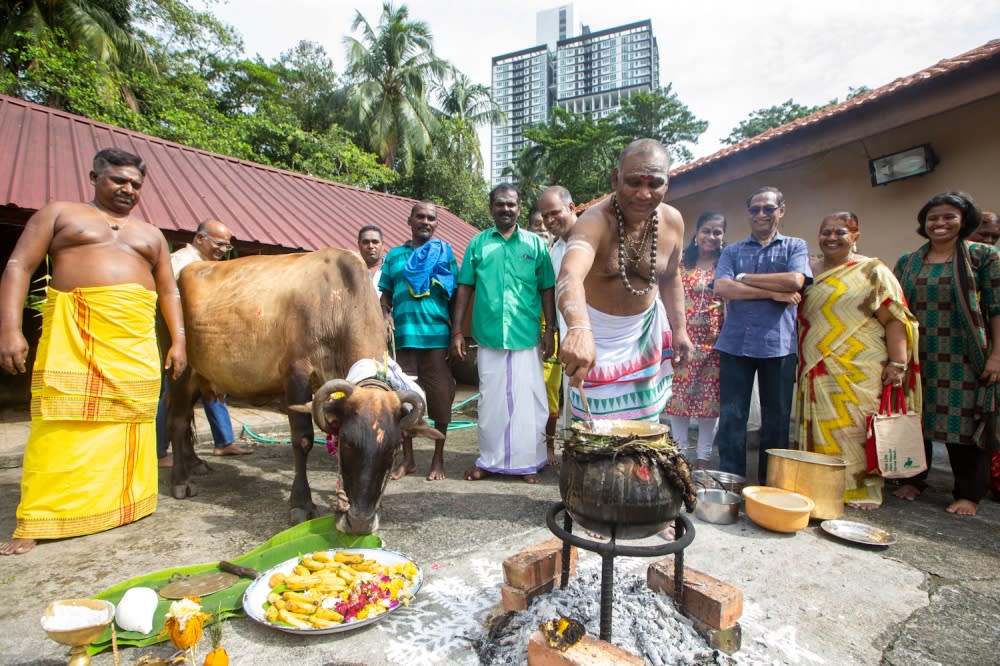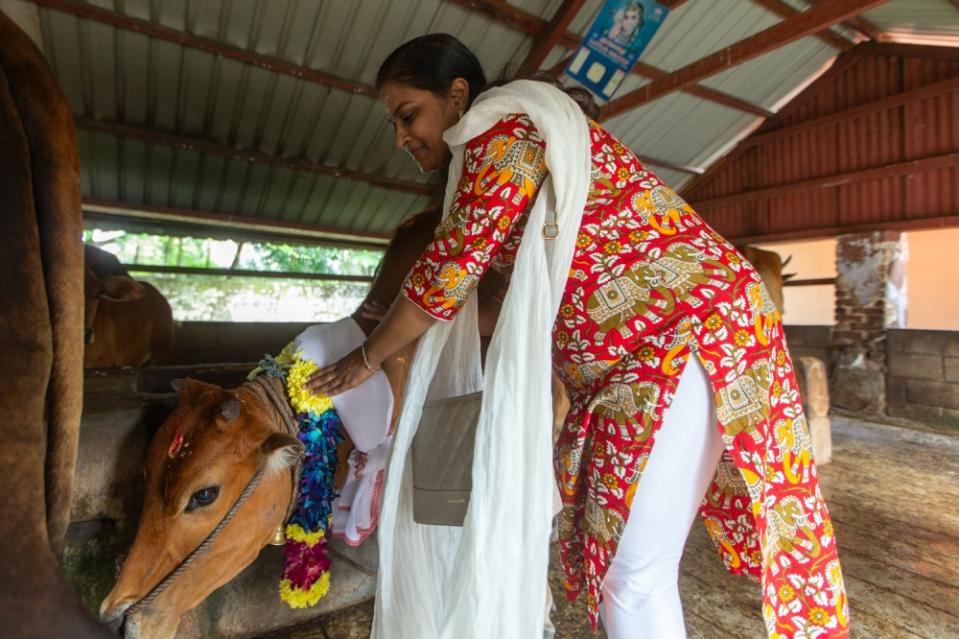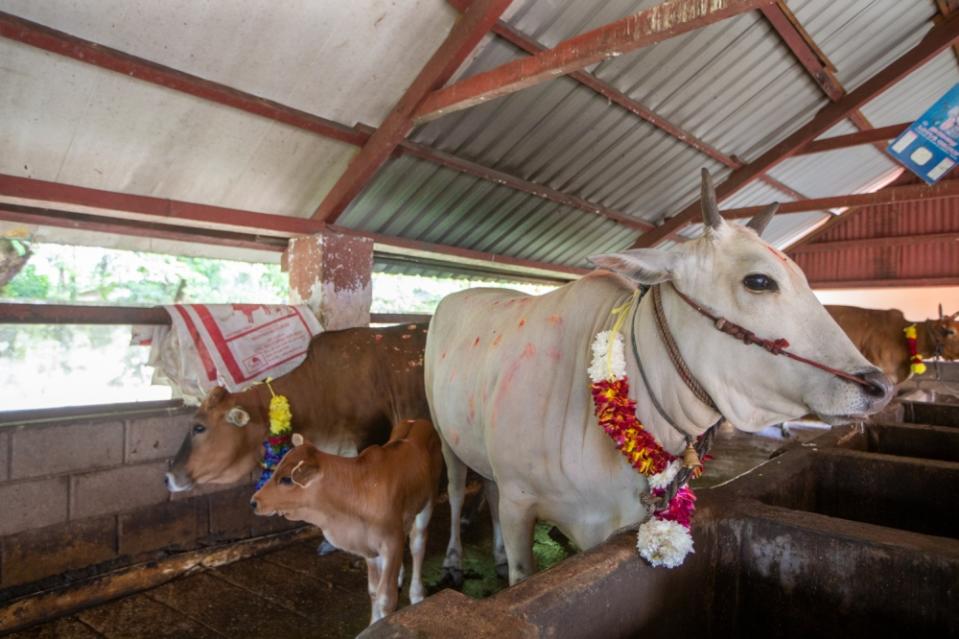Sentul temple offers thanksgiving to cows on Maatu Pongal

KUALA LUMPUR, Jan 16 — Cattle are considered sacred animals in the Hindu culture, and are revered by the Tamil community on the second day of the Pongal harvest festival for sustaining the livelihoods of farmers.
Celebrated as Maatu Pongal, the occasion starts with bathing the cows, decorating them with sandal paste and vermilion before adorning them with garlands and the traditional Indian attire of dhoti around their necks.
One of Sentul's last remaining cowsheds, tucked away behind the Sri Thandayuthapani Temple along Jalan Ipoh continues this age-old tradition.
Led by the temple's chief priest Manimanan Muniandy, the temple staff start boiling the milk to cook a meal for the cows, and devotees offer their prayers once the boiled milk overflows.
The ritual was accompanied by the mangala vadyam (auspicious music) with traditional instruments like the thavil (barrel-shaped drums), nadaswaram (a double reed wind instrument) and the blowing of a conch.

On Maatu Pongal, cows are bathed, decorated and adorned with garlands and the traditional dhoti around their necks. — Picture by Raymond Manuel
"Traditionally, the cows work all-year-round, plowing the rice fields and from their milk, we derive butter, ghee and other dairy products to sustain our households.
"So, on Maatu Pongal, we allow the cattle to rest and revere them for their contributions.
"Maatu Pongal also marks the start of the bull-taming rite or Jallikattu, an ancient Indian sport participated by men in Tamil Nadu to demonstrate their courage,” Manimanan, 60, told Malay Mail when met during the celebrations at the temple today.
Manimanan, who has served as a priest in the temple for 47 years, said the cows are accorded with the same respect that humans receive on this day.
After the cows are well-fed, the cowherd wipes their mouth and then the priest performs a ritual using dried chillies to remove kan-drishti (evil eye) casted on the cows to ensure their wellbeing.

After feeding the cows, the priest also performs a 'kan-drishti' ritual using dried chillies to remove evil eyes cast on them. — Picture by Raymond Manuel
The ritual is usually done in the Hindu culture for young babies or for adults recovering from sickness as well as for those undergoing ordeals.
"Such a huge crowd gathered to feed the cows and watch them graze today. Surely, they would’ve caught some evil eyes too,” Manimanan said in a jest.
Celebrated during the Thai month (the tenth month in Tamil calendar), the four-day-long Pongal festival marks the start of the harvest season in the southern region of India.
Tomorrow marks the last day of Pongal, which will be celebrated by unmarried girls wishing for a blissful marital life offer their prayers in the occasion known as Kaanum Pongal.



